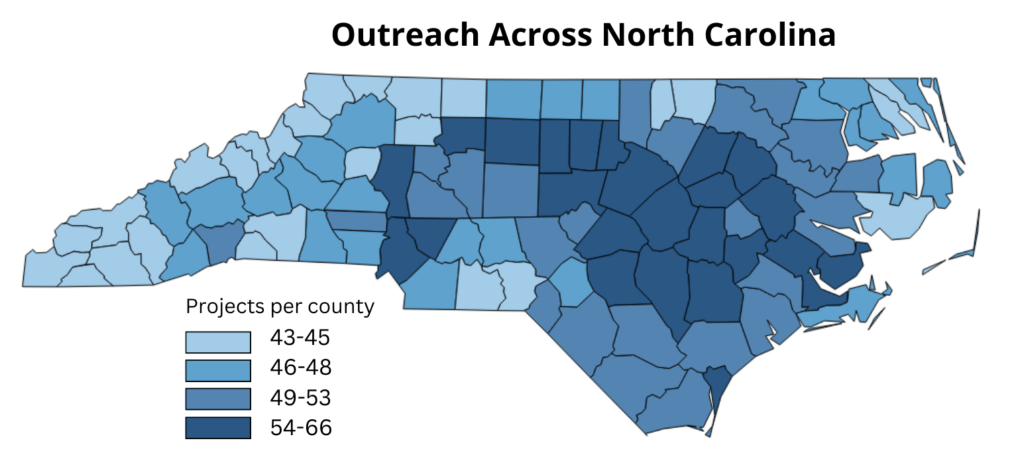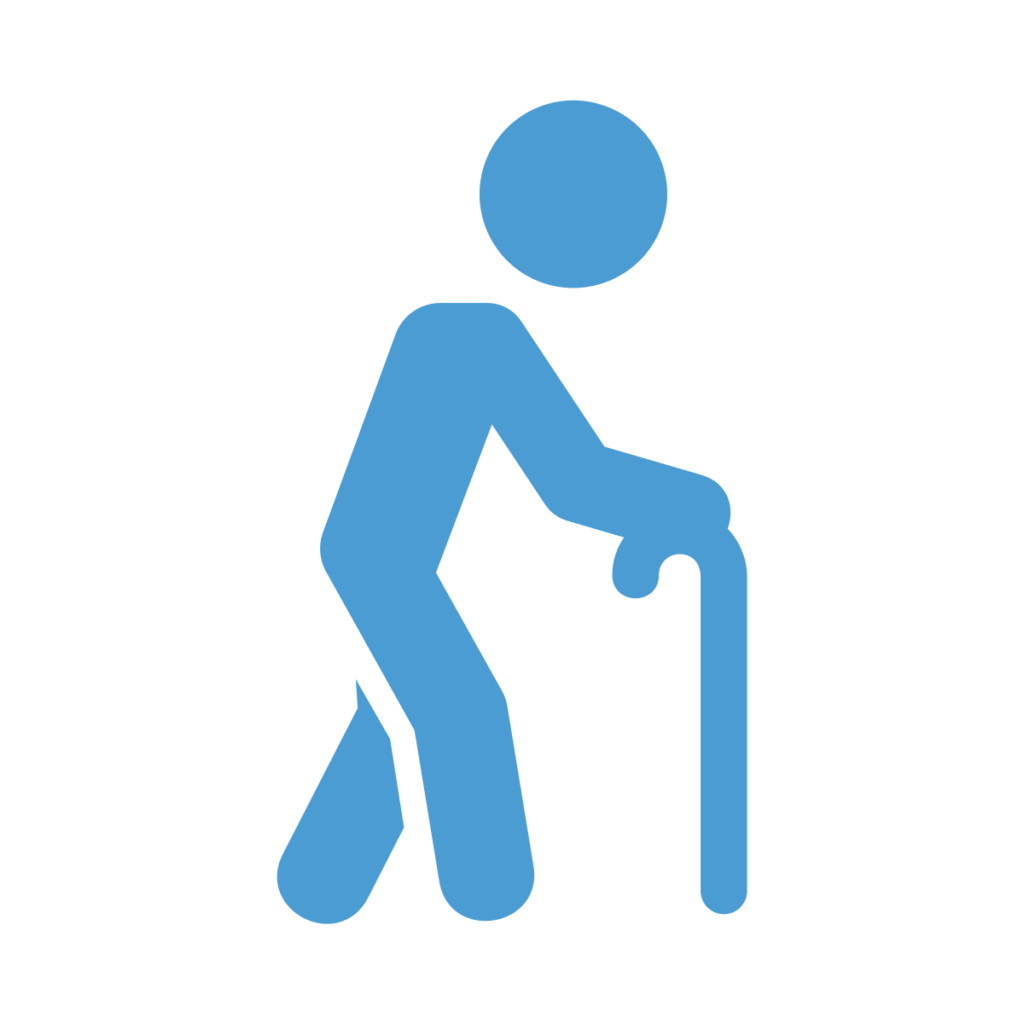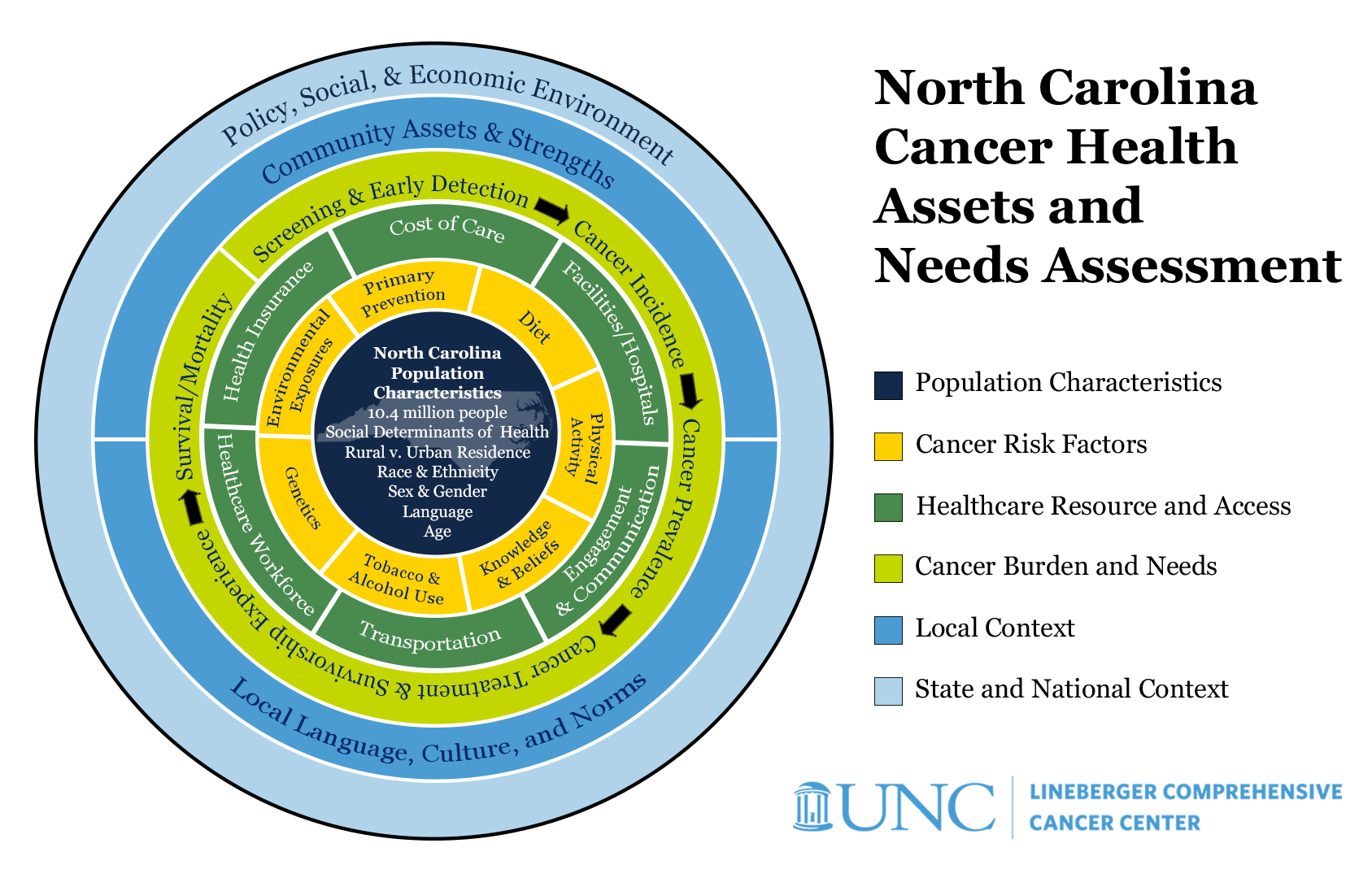Who We Serve
The UNC Lineberger is the only public National Cancer Institute (NCI) designated comprehensive cancer center in North Carolina.
UNC Lineberger serves all 100 counties in North Carolina. The entire state of North Carolina is considered UNC Lineberger’s catchment area.
COE projects at UNC Lineberger

- UNC Lineberger research and outreach efforts span across all 100 counties
- There were 82 community engaged projects (studies or outreach activities) at UNC Lineberger between 2021-2022
- At least 43 UNC Lineberger projects are serving EVERY county in NC between 2021-2022
- There are 48 unique researchers engaging the community in their research between 2021-2022
Statewide Numbers as of 2019
Total NC Population: 10,488,084
Race and Ethnicity
| 1.1% | American Indian / Alaska Native | ||
| 2.9% | Asian | ||
| 21.1% | Black / African American | ||
| 9.8% | Hispanic | ||
| 0.1% | Native Hawaiian & other Pacific Islanders | ||
| 62.5% | White | ||
| 0.2% | Additional races | ||
| 2.2% | Two or more races |
Population Characteristics
| 23.2% | Rural | ||
| 13.6% | Below poverty level | ||
| 4.6% | Unemployment rate | ||
| 14.6% | No broadband access at home | ||
| 68.0% | GED / High school degree or higher |
North Carolina Demographics
| NC % | US % | ||
 |
Sex assigned at birth – female | 51 | 51 |
 |
Rural Populations | 23 | 15 |
 |
Foreign Born | 8 | 13 |
 |
Veteran | 8 | 7 |
 |
Spanish Language Spoken at Home | 8 | 14 |
 |
Age 65+ | 17 | 16 |
 |
Less than 18 | 22 | 22 |
Cancer Related Numbers in NC
The office of Community Outreach and Engagement gathers and collects data from existing sources and through our own surveys. This data is important for us to ensure that the cancer center is aware of disparities that are happening and to make sure that the research the cancer center does is relevant to the needs of our population.
The information we collect can be found in our Cancer Health Assets and Needs Assessment (CHANA) and includes information on:

- North Carolina population characteristics
- Number of people in North Carolina
- Social determinants of Health (SDOH)
- Rural v. Urban residency
- Race and Ethnicity
- Sex and gender
- Languages spoken
- Ages
- Cancer Risk Factors
- Primary prevention
- Diet
- Physical activity
- Knowledge and beliefs
- Tobacco and alcohol use
- Genetics
- Environmental Exposures
- Healthcare Resources and Access
- Cost of Care
- Facilities and Hospitals
- Engagement and communications
- Transportation
- Healthcare workforce
- Health insurance
- Cancer burden and Needs
- Screening and early detection
- Cancer incidence
- Cancer prevalence
- Cancer treatment and survivorship experience
- Survival and mortality
- Local context
- Community assets and strengths
- Local languages, culture, and norms
- State and National Context
- Policy, social and economic environment
The CHANA contains three phases and eventually will be a one-stop resource for downloadable, shareable, aggregate and deidentified data, including:
- Collation and analysis of existing public datasets
- In-depth analysis of other secondary data
- Primary data collection
To ask for data from our office, visit our data page or email us at askCOE@unc.edu.